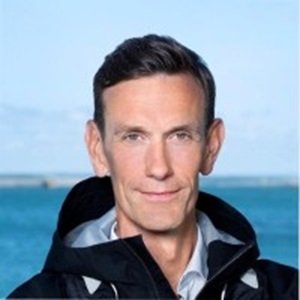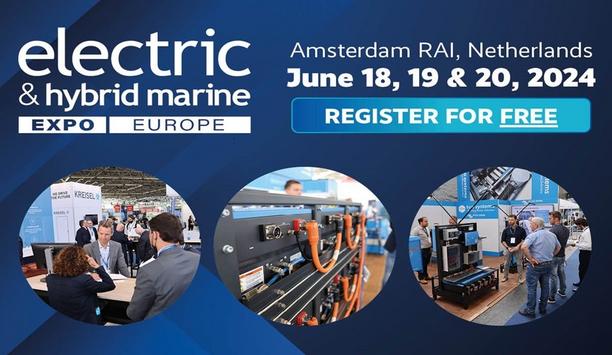Volvo Penta - Experts & Thought Leaders
Latest Volvo Penta news & announcements
On the Swedish waters of Volvo Penta’s Krossholmen Test Centre, the company is extensively testing the Volvo Penta IPS Professional Platform and setting new standards to examine and refine the offer. The goal is to ensure the system is market-ready and delivers the ultimate experience at sea through flexibility, reliability, and performance. Penta 40 A crucial element of this rigorous approach to on-water testing is a vessel called Penta 40. This 37 m, 199-passenger ferry navigated the challenging waters of the Norwegian seas for nearly two decades before it was retired. Volvo Penta brought the ferry back to life by repowering it with the Volvo Penta IPS Professional Platform. Helm-to-prop experience Engineered with efficiency at its core, the Volvo Penta IPS Professional Platform sets a new standard Volvo Penta is testing the system to a level that marine platforms seldom see with thousands of hours logged so far. This includes stringent trials of the system’s fully integrated helm-to-prop experience, such as its intelligent dual power drive system, smart power sources, and integrated technologies. Engineered with efficiency at its core, the Volvo Penta IPS Professional Platform sets a new standard in the industry. Its intelligent Eco Mode feature is being tested extensively – a feature that automatically starts/stops individual engines based on the power needed, optimising engine performance and fuel consumption. Testing apporach Volvo Penta has tested the system aboard the Penta 40 vessel for more than 10,000 hours. This includes on-water tests, endurance rig trials, component fatigue tests, and computer-aided simulations that scrutinise every aspect of the system’s efficiency, flexibility, and intelligent features. In line with the platform’s innovation, Volvo Penta has expanded its testing approach to include a digital dimension. Volvo Penta IPS Professional Platform "We are conducting extensive virtual testing of the Volvo Penta IPS Professional Platform, utilising a unique digital twin of the system," said Petter Andolf, Chief Project Manager at Volvo Penta. He adds, "This virtual testing has enabled us to achieve 9,000 hours of computer-aided testing so far, supporting our efforts to enhance product quality and features and provide greater flexibility for engineers during the test and development phase. Ultimately, this will shorten our time to market." Improved maneuverability Volvo Penta also invited the vessel’s former captain, Roar Johansen, to test drive the revamped ferry Volvo Penta also invited the vessel’s former Captain, Roar Johansen, to test drive the revamped ferry and experience the Volvo Penta IPS Professional Platform firsthand. "With the Volvo Penta IPS Professional Platform, the vessel is delivering better acceleration, improved maneuverability, and reduced emissions," said Johan Inden, President of the Marine Business Unit at Volvo Penta. He adds, "And Captain Johansen’s insight reinforces that the intelligent features of the Volvo Penta IPS professional platform reflect a new era in piloting ease, passenger comfort, and an enhanced experience." Reunion ride Captain Roar Johansen piloted the passenger ferry for years (back when it was called the Helgeland). Piloting the revamped Penta 40, he said, was a revelation. "I recognise the boat, it’s the instruments that have changed," said Captain Johansen, adding "The maneuverability is incomparable to the old system and the acceleration is amazing – and with such little noise and even more comfort!" He continues, "The system is now so much easier to use. The system is taking care of us – it watches over us as we navigate the water. It was an amazing day." Data-driven insights Historic data was taken from the ferry’s former propulsion system - a 2018 controllable pitch system - which was known to perform well. Three years of load data was also taken from a similar vessel operating off the Italian Amalfi Coast. Volvo Penta compared the data to the Penta 40 under comparable load conditions. Vessel’s acceleration For a 37 m-long passenger ferry this delivers immediate advantages, bringing more ease and speed Findings showed that the Volvo Penta IPS professional platform decreased the turning radius by 20% compared to the previous system. For a 37 m-long passenger ferry this delivers immediate advantages, bringing more ease and speed to docking and maneuvers in narrow waters. Testing also shows a notable uptick in the vessel’s acceleration, reaching 30 knots in 28 seconds, compared to more than 50 seconds before the repower. IMO III regulations In terms of installation, the Volvo Penta IPS Professional system weighs 2,000 kg less and takes up 4,000 mm less hull space than the previous system. These weight savings are achieved even with the addition of an exhaust after-treatment system to comply with IMO III regulations. The results from the Penta 40 showed that the Volvo Penta IPS professional platform delivers outstanding acceleration and maneuverability, as well as a lower total cost of ownership. Eco Mode "Extensive on-water tests of the Penta 40 will continue throughout 2024. The experience so far proves that the system's intelligence is unmatched and smart features like Eco Mode enable new levels of efficiency," said Johan Inden. He adds, "We’re looking forward to integrating the learnings into our final development as we move closer to delivering the system in 2025."
One of the world’s major exhibitions and conferences for maritime electrification, decarbonisation, and GHG reduction solutions will once again dock in Amsterdam this June. Electric & Hybrid Marine Expo Europe will feature 200+ exhibitors under one roof, PLUS a full three-day conference programme with 40+ expert speakers! Hosting industry pioneers Taking place at the Amsterdam RAI in the Netherlands, on June 18, 19 & 20, the event will host over 200 exhibitors, including industry pioneers such as ABB, Rolls-Royce Solutions, Volvo Penta, Wärtsilä, Zinus, and Speedgoat – to name just a few! Alongside the exhibition is a world-pioneering conference featuring over 40 speakers, plus a separate conference on autonomous ship technology. Global event for suppliers and engineers Throughout the event, there will be plenty of networking opportunities to meet new suppliers and reconnect This is a global event for suppliers and engineers of electric hybrid and autonomous marine systems to meet and discuss a more sustainable future and the technologies that will make it happen. Throughout the event, there will be plenty of networking opportunities to meet new suppliers and reconnect with industry peers. Fast-track the fleet’s move to more sustainable operations by attending the world’s pioneering event for marine electrification, decarbonisiation, hybridisation, future fuels, shore charging, and low-carbon shipping solutions. Propulsion solutions Entrance to the exhibition is free of charge – just visit the event website to register for an entry pass. The show is ideal for companies ranging from small regional ferry fleet operators keen to reduce costs, to international shipowners and operators wanting to learn more about tomorrow’s propulsion solutions, as well as boat builders and engine makers concerned about the latest emissions legislation. Three-day conference programme The event brings together R&D experts and engineers from across the marine sector, providing one of the best networking opportunities of the year. The three-day conference programme (for which rates apply) will bring together attendees from around the world to listen to over 40 expert maritime engineering and academic speakers from organisations including DNV, GE Power Conversion, Port of Amsterdam, Polish Register of Shipping, Rolls-Royce, the Maersk McKinney Moller Center for Zero Carbon Shipping, Wärtsilä Marine, Shell Marine, and Vard Group. Elias Boletis' presentation Unpick questions about the drivers of technological progress toward decarbonisation in the marine sector Key highlights include a presentation from Elias Boletis, chair of the CIMAC Working Group 10. The working group provides a link between shipowners and the equipment manufacturers for the marine sector, and Elias’s presentation – The challenges to ship owners in the decarbonisation process, and the responsibilities of equipment manufacturers – will unpick questions about the drivers of technological progress toward decarbonisation in the marine sector. Are they pulled along by demand from shipowners or pushed forward by equipment manufacturers? What are the implications of either approach? Which would be best and should either do more of the same, less, or something entirely different? This is a must-see presentation for any shipowner, OEM, or equipment manufacturer who wants to understand how the technology enters the market and is applied to shipping. Autonomous ship technology Another feature of the show is an area for autonomous ship technology, which has its conference programme where ship designers, classification societies, fleet owners, naval architects, research organisations, and equipment suppliers will discuss the developments needed to make autonomous operations a reality and improve efficiency. The expo will also host the revamped Electric & Hybrid Marine Awards, with a host of categories to better reflect the scale of innovation across the maritime propulsion industry. Next-gen e-outboard At the expo, Volta Future will present a revolutionary e-outboard with 222kW (300hp) continuous power and 790Nm. The next-gen e-outboard is called iWOP, which stands for invisible waterline outboard power drive. The housing of the iWOP is much more compact than classic outboard housings and contains two specially developed, high-performance electric motors together with a directly cooled double inverter. Unlike other outboards on the market, the iWOP can be mounted not only on boats with transom (outboard) but also on boats with (normally) inboards instead of the sterndrive, enabling the provision of a bathing platform instead of an engine housing. Solid-state batteries As overcharge, over-discharge, short circuits and similar issues have minimal impact other than reducing battery life EPTechnologies will showcase solid-state batteries, which the company says represent a significant advance in battery technology. Unlike traditional lithium-ion batteries, which use liquid electrolytes, solid-state batteries do not. This fundamental difference enhances safety, cycle life, and overall performance. They can be overcharged, heated to extreme values, and even punctured with a projectile with no ill effects. This opens new possibilities for applications. For instance, EPTechnologies can develop batteries equipped with a hardware override switch to bypass all electronic control systems if necessary. As overcharge, over-discharge, short circuits and similar issues have minimal impact other than reducing battery life, users can be assured of accessing the power they need, regardless of the situation. Vigilant 600 forward-looking sonar (FLS) At the Autonomous Ship Expo, Wavefront Systems will present its new Vigilant 600 forward-looking sonar (FLS). Complementing the company’s Vigilant 1000 and 1500 systems, it allows autonomous surface and subsurface vessels to transform their underwater situational information. The provision of real-time navigational and obstacle avoidance data to onboard or remotely controlled systems enables safer operations in unfamiliar or dynamic environments by dramatically reducing the risk of collisions or grounding. Patented technology capable of depth-finding at ranges ahead of the vehicle over 20 times the prevailing water depth, combined with real-time data on poorly charted seabed features and water column obstacles, enables reactive navigational autonomy.
SAFE Boats International announces the introduction of a revolutionary, autonomous hydrographic survey vessel: Merlin. This innovative, 23-metre semi-displacement monohull design was developed in collaboration with Mythos AI, Echo81, and World Marine Design. SAFE Boats International has exclusive rights to build the design at their Tacoma, Washington large-craft production facility. Autonomous hydrographic survey vessel: Merlin Merlin will be a Jones Act-compliant all-aluminum hull powered by a twin Volvo Penta D13 Hybrid-ready System with IPS. For a zero-emission power package, the Merlin can accommodate forward-thinking hydrogen technology supplied by Zero Emission Industries (ZEI). Both power options offer lower emissions and extended range to perform site assessment surveys at offshore wind energy areas. Featuring three deck levels The hull was specifically designed to incorporate the industry’s most advanced sonars with minimal interference Three deck levels offer crew and technicians sleeping berths, full bathroom, galley, survey workstation, and a marine mammal observer post on the fly-bridge. The generous aft working deck is equipped with an A-Frame, dual winches, moonpool, and outboard seismic booms. The hull was specifically designed to incorporate the industry’s most advanced sonars with minimal interference, while collecting data at a highly efficient pace. Seakeeper gyro provides active ride control A Seakeeper gyro provides active ride control, greatly enhancing stability and crew comfort. A shallow draft of 1.6 metres allows the Merlin to perform various survey missions and make port in small or large harbours across the U.S. Hydrographic systems provider, Echo81, is nationally recognised as a renowned expert in the hydrographic survey industry. With their contribution, Merlin is the industry’s first geophysical vessel that can be acquired directly from the builder (SAFE Boats International) with a fully integrated geophysical sensor suite configured specifically for U.S. Offshore Wind. Echo81 to offer a single source for sensor service and support Echo81 will provide a single source for sensor service and support, drastically reducing the cost burdens associated with owning and operating survey vessels. Mythos AI, a cutting-edge maritime autonomy provider, is responsible for optimising Merlin vessels for autonomous survey operations. Mythos AI’s advanced driver assist systems (ADAS) Mythos AI’s advanced driver assist systems (ADAS) are designed specifically to automate geophysical workflows, so that skilled hydrographers and crew are not required to physically be onboard the vessel. As Mythos AI’s technology advances, it will be capable of providing a push-button, long endurance, dock-to-dock, self-driving and self-surveying solution for offshore wind.








